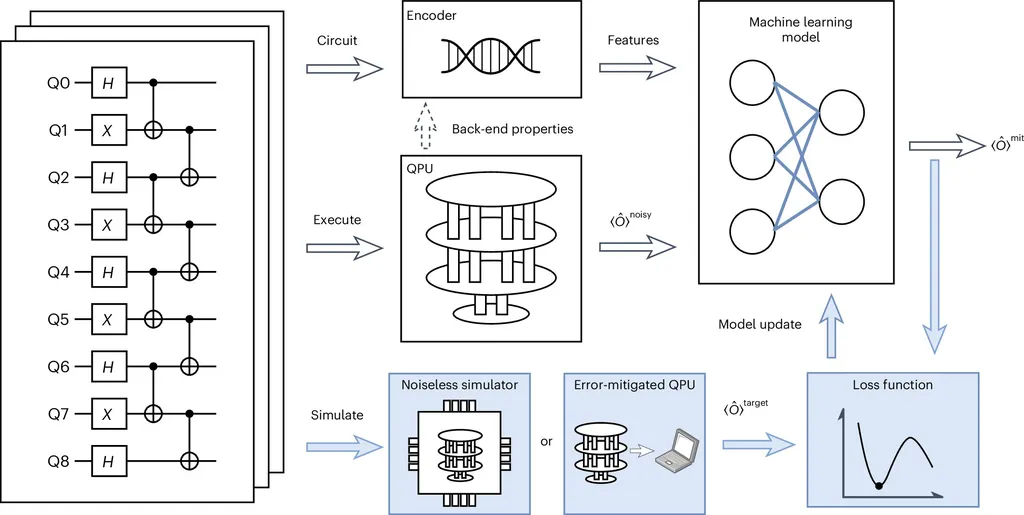Researchers from the University of Copenhagen, including Oskar Graulund Lentz Rasmussen, Erik Kjellgren, Peter Reinholdt, Stephan P. A. Sauer, Sonia Coriani, Karl Michael Ziems, and Jacob Kongsted, have developed a new quantum error mitigation technique that could have significant implications for the energy sector, particularly in quantum chemistry applications. Their work, titled “Cost-effective scalable quantum error mitigation for tiled Ansätze,” was recently published in the journal Physical Review Letters.
Quantum computing holds promise for revolutionizing the energy industry, particularly in areas like material science and drug discovery, where quantum simulations can provide insights that are currently beyond the reach of classical computers. However, quantum computers are highly susceptible to errors, which can significantly impact the accuracy of these simulations. Error mitigation techniques are therefore crucial for making quantum computing practical for real-world applications.
The researchers have introduced a new technique called “tiled M0,” which builds on a previous error mitigation method known as M0. Tiled M0 leverages the unique structure of tiled Ansätze—specific types of quantum circuits used in quantum simulations—to apply a locality approximation. This approximation significantly reduces the cost of noise characterization on the quantum processing unit (QPU), making the technique more cost-effective and scalable.
The researchers validated tiled M0 through molecular ground state energy calculations using the tUPS Ansatz on various molecules, including LiH, molecular hydrogen, water, butadiene, and benzene, ranging from 4 to 12 qubits. The results showed that tiled M0 maintained accuracy comparable to M0 in noisy simulations. Furthermore, the technique demonstrated promising performance in actual quantum experiments, highlighting its potential for near-term applications.
For the energy sector, this research could lead to more accurate and efficient quantum simulations of molecular and material properties. This could accelerate the discovery of new materials for energy storage, more efficient catalysts for chemical reactions, and better understanding of complex molecular interactions, all of which are critical for advancing renewable energy technologies and reducing environmental impact.
The researchers’ work represents a significant step forward in making quantum computing more practical and accessible for real-world applications in the energy industry. As quantum technology continues to evolve, techniques like tiled M0 will be essential for unlocking the full potential of quantum computing in addressing some of the most pressing challenges in energy and beyond.
This article is based on research available at arXiv.

